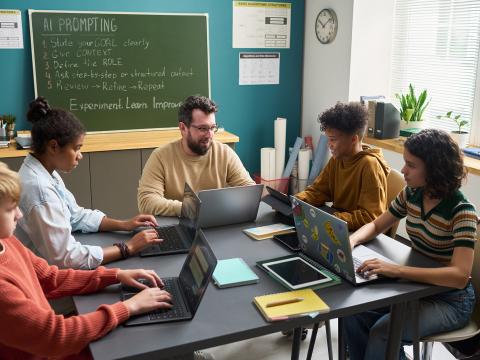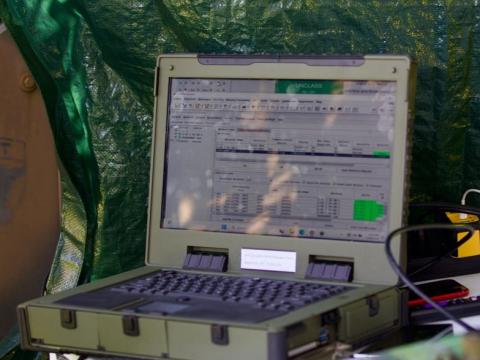The Increasing Need for More Creative Thinkers in the Intelligence Community
Some collegiate professors and leaders of the private sector are finding new ways to integrate and insert creative minds into their workforces.
Martin Swartz, the presidential scholar at the National Intelligence University, suggests those in the intelligence community (IC) need to apply a more creative and open thinking process when it comes to problem-solving.
“[It’s] more how we think, how we approach problems, and what tends to do us in is linear thinking, that we have to have just one answer,” Swartz said at the 2024 Intelligence and National Security Summit. “I don’t think it matters what a person sort of studied, whether it’s engineering or whether it’s French, but [rather] it’s an openness to different ways of thinking, and that can be developed in school.”
Swartz voiced these ideas after pointing to a study that explains as people get older, the less creative they become. NASA conducted an experiment in which they gave children a creativity test. According to Swartz, 98% of child participants scored very highly—a significant contrast to how adults fared. On the exact same test, only 2% of adults scored very highly.
Swartz said he believes this dramatic drop-off can be attributed to the U.S. education system or maybe the pressure that people endure as they age. Swartz added that the less creative the IC gets, the more vulnerable it becomes.
“If we can’t bring creativity, alternative futures, all sorts of nonlinear thinking into our work in the IC, I would argue we’re going to be at risk of intelligence failures, potentially putting our country and our allies at risk,” Swartz said.
Officials in the private sector are noticing the same issue. Meredith Wilson, the CEO and founder of Emergent Risk International, said employers in the IC need to pursue those people who think in a nontraditional way.
“We still need people who know China really well,” Wilson said. “I hire China experts all the time, right? We still need those people. But when you think about intelligence studies, I would urge people to think a lot broader than just the kind of traditional way that we think about intelligence within the intel community.”
Swartz indicated this unconventional thinking should be fostered through a mutual relationship between the IC and universities.
“This is the area where I think that greater partnership between the IC and academic world can really help,” Swartz said. “Within the IC, there are many advocates of the kind of creativity I’m talking about. I’ve had the privilege to work with many of them, and there are many IC stakeholders who’ve tried to incorporate this kind of thinking into our product lines. But I think it hasn’t always gone well, and additional partnerships with colleges and universities will help advance this even more.”


Comments